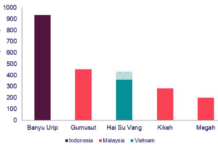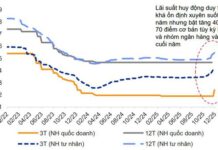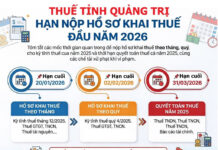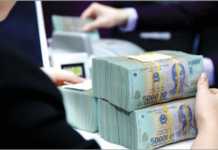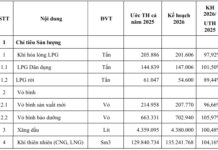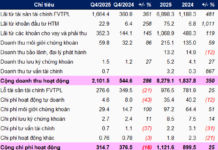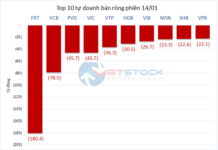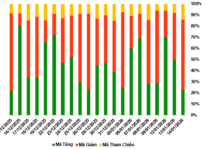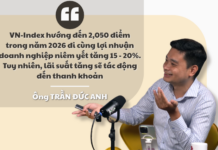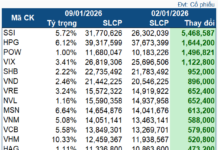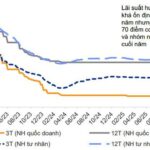The Ministry of Finance has recently submitted to the Ministry of Justice the dossier for the Draft Resolution of the National Assembly on amending and supplementing certain provisions of Resolution No. 107/2023/QH15 regarding the application of additional corporate income tax in accordance with global anti-tax base erosion regulations.
In its proposal to the Government, the Ministry of Finance cited the Ministry of Industry and Trade’s opinion on the impact of the global minimum tax on BOT thermal power projects guaranteed by the Government. According to the review, there are currently 7 eligible BOT power projects, including Mong Duong 2, Vinh Tan 1, Hai Duong, Duyen Hai 2, Nghi Son 2, Van Phong 1, and Vung Ang 2.
The total additional corporate income tax expected to be paid by 6 out of these 7 projects is approximately USD 425.8 million. Nghi Son 2 faces the largest impact, with nearly USD 190 million by 2047, followed by Vinh Tan 1 at around USD 65 million and Hai Duong at approximately USD 94 million. Duyen Hai 2’s data is currently unavailable.
These projects have substantial capital, with 75-80% financed through international credit institutions and 20-25% contributed by investors.
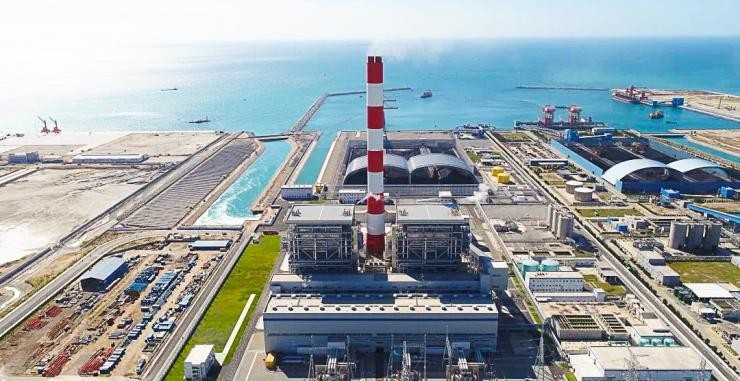
Mong Duong 2 Thermal Power Plant.
The application of the global minimum tax could result in hundreds of millions of USD in additional tax liabilities for BOT power projects in Vietnam, affecting cash flow and debt repayment capabilities. The Ministry of Industry and Trade has requested the Government to report to the National Assembly for exemption or special mechanisms to address this issue.
The Ministry of Industry and Trade stated that all BOT power projects have received government commitments to stable tax policies to ensure cash flow and debt repayment. If additional tax liabilities arise under Resolution 107/2023/QH15, investors may invoke the “Government Event” clause in BOT contracts and seek compensation.
Some compensation measures proposed by businesses include increasing electricity prices in Power Purchase Agreements (PPAs) or extending project operation periods. However, the Ministry of Industry and Trade deems these solutions impractical: higher electricity prices could disrupt macroeconomic stability and energy security, while extending operations would conflict with land, financial, and infrastructure contracts, as well as national power planning.
Therefore, the Ministry of Industry and Trade recommends the Ministry of Finance to propose to the Government to report to the National Assembly for exemption from the global minimum tax for BOT power projects or to include appropriate exemption mechanisms in detailed guiding decrees.
Based on the Ministry of Industry and Trade’s opinion, the Ministry of Finance reported to the Government that Resolution 107/2023/QH15 does not include exemption provisions or authorize the Government to guide such content. Thus, a special mechanism requires the National Assembly to issue an amended resolution.
The Ministry of Finance proposes adding Clause 10 to Article 4 of Resolution 107, stating: “The additional domestic minimum corporate income tax will be set at 0 for the fiscal year for enterprises implementing BOT power projects, provided that the Build-Operate-Transfer contract includes tax commitments and was signed before Resolution 107 takes effect (January 1, 2024).”
For enterprises implementing BOT power projects as part of a multinational group with multiple entities in Vietnam, the additional domestic minimum corporate income tax will be allocated based on the group’s income criteria, and the allocated tax will be set at 0.
If the enterprise implementing the BOT power project is the sole entity or joint venture of the multinational group in Vietnam, it must file tax returns as per Article 6 of this Resolution and declare the additional domestic minimum corporate income tax as 0.
Proposed New Policy Series for the International Financial Center in Vietnam
The Ministry of Finance has proposed a groundbreaking initiative: exempting high-caliber experts, scientists, and top-tier professionals working at the International Financial Center from personal income tax on their salary and wage earnings until the end of 2030.
The E-commerce Floor and Digital Platforms: A Case for Corporate Income Tax
The government has proposed a new regulation requiring foreign businesses providing goods and services through e-commerce and digital platforms to pay taxes on their taxable income derived from Vietnam. This proposal aims to ensure that foreign enterprises doing business in Vietnam’s digital landscape contribute their fair share to the country’s tax revenue.
A Plea for Tax Exemption on Charitable Business Donations
The HoREA has proposed an 18% corporate tax rate for small and medium-sized enterprises with annual revenues between VND 50 billion and VND 300 billion. This suggestion comes alongside their request for tax exemptions on charitable donations.





